In war-torn Sudan, hunger mounts and hopes wane
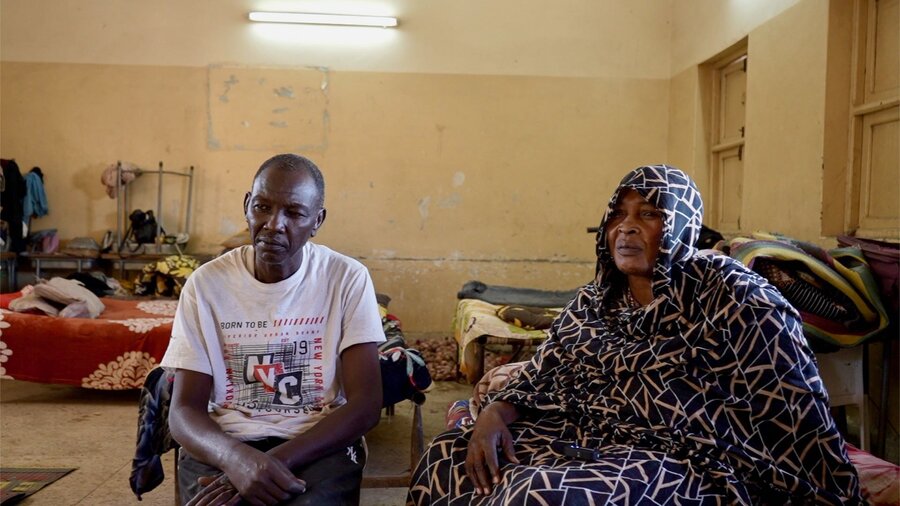
Awad Adam and his wife Nafisa have been on the move ever since Sudan’s war broke out last April. As the capital Khartoum buckled under gunfire, they headed south to then-tranquil Gezira state, the breadbasket of this East African nation.
In December, when shelling hit their shelter in Gezira’s main city of Madani, the couple and their eight children fled once again, this time with just the clothes on their backs.
“We are left with nothing,” Adam says, sitting with his spouse in a paint-chipped classroom in Port Sudan, a Red Sea town now hosting thousands of conflict-displaced people.
“Now WFP has arrived,” he added of the World Food Programme, “and you are helping us.”
WFP resumes food assistance in crisis-torn Sudan
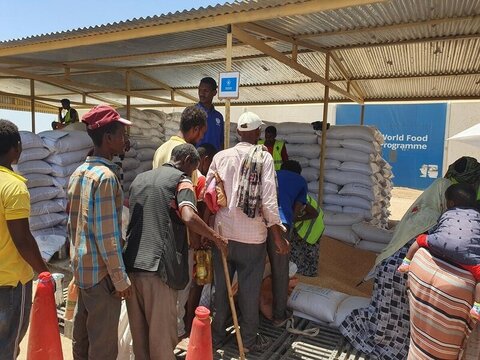
Today, the couple counts among more than 10 million people uprooted from their homes - amounting to the world’s largest displacement crisis. WFP is working alongside other humanitarian agencies to respond to the escalating needs.
Over the past year, our food and nutrition assistance has reached around 6.5 million people inside Sudan, along with many others who have fled to neighboring countries. On any given month, nearly 1.9 million people receive our food or cash distributions across 17 of Sudan's 18 states.
But needs are skyrocketing. Nearly 18 million people countrywide face extreme food insecurity, including 5 million experiencing emergency hunger conditions. Many must take desperate measures to survive, or risk dying from malnutrition.
Those trapped in conflict hotspots, including Khartoum, Darfur and Gezira states, face the highest hunger levels. Reaching them is becoming almost impossible, due to security threats, roadblocks and other challenges. Without free access, we are warning of a looming hunger catastrophe.
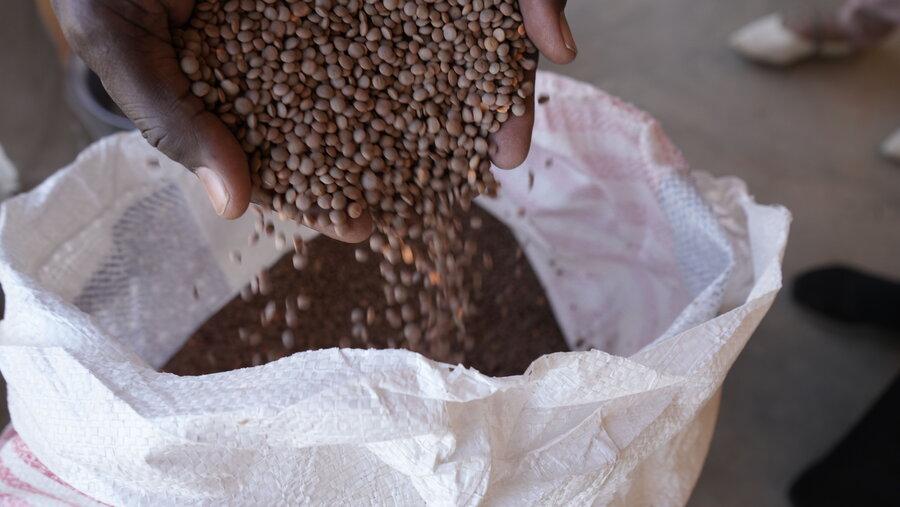
“WFP has food in Sudan and we are ready to deliver it to families who need it most,” says WFP Sudan Representative and Country Director Eddie Rowe. “But unnecessary hurdles are slowing operations, and preventing us from getting it to the people who urgently need our support.”
Worried about the future
Like many in Sudan, WFP employees have also been forced to flee once-safe areas - and often, their journeys closely track those of the people we serve. Staying with friends, family or in makeshift shelters, our staff are still on the job every day, trying to prevent the country’s humanitarian crisis from getting worse.
“People are worried about the future, worried about the education of their children, worried about their homes,” says Karim Abdelmoneim, who is coordinating WFP’s emergency response in Madani.
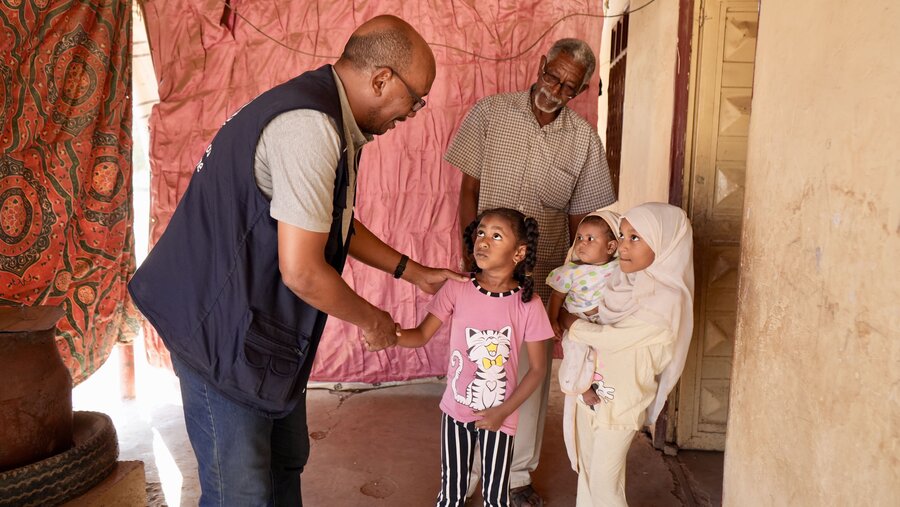
Like Adam and Nafisa, Abdelmoneim and his family also fled Khartoum. They were again uprooted from Madani. Today, he sleeps in WFP’s office in Kassala, a town roughly 500 km east of Khartoum. His wife and children have found safety outside the country.
“I have just a bag, laptop and mattress,” Abdelmoneim says. “I’ve grown used to it.”
Sudanese are helping their fellow countrymen get through the crisis. “They provided us with food and water, they welcomed us very well,” Adam says of the Port Sudan residents who also gave his family the mattresses they sleep on.
At the local school where they now live, classrooms are crammed with mattresses and families’ scant possessions. Outside, workers distribute nutrition assistance and WFP food, including vegetable oil, salt, sorghum and pulses - enough to tide people by for at least a month.
“From the time we started distributing the emergency food assistance, I can see how these people appreciate it,” says Hafiz Ibrahim, WFP Programme Officer in Port Sudan.
“My greatest fear is the conflict will spread to the safe areas,” he adds. “That would really be catastrophic for the Sudanese people.”
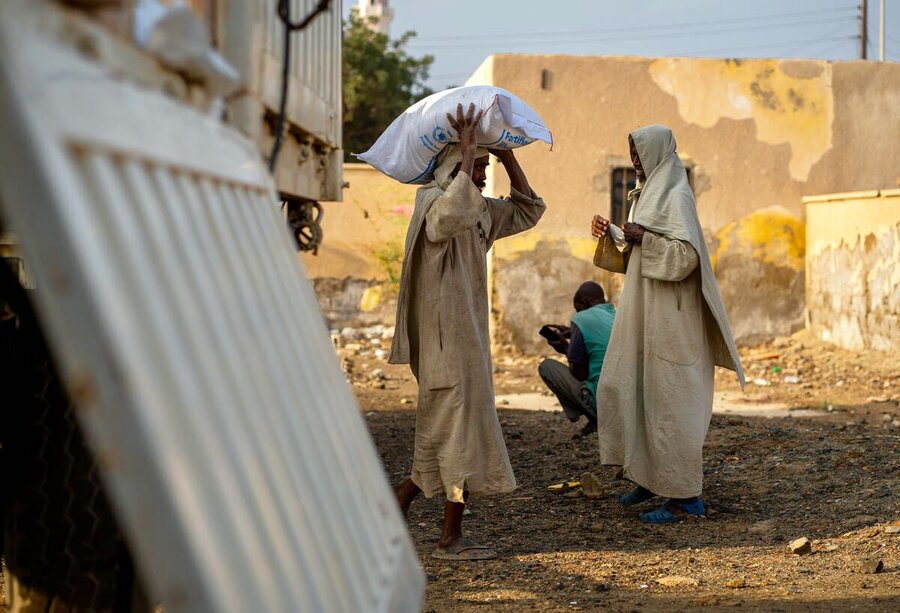
Food cannot solve everything. The war has made Adam and Nafisa’s children fearful. One of their boys has panic attacks. The couple worries about their education. And Nafisa says they need money to launch a business and start anew.
The couple is also uncertain if they will ever return to Khartoum.
“Safety is the most important,” Nafisa says. “I’m scared to go back.”
At a time when multiple crises are competing for headlines and resources, people here fear they may be forgotten, says WFP emergency coordinator Abdelmoneim.
“Sudanese are worried about who is going to help them recover,” he says. “Because the whole world is at a boiling point. It is very difficult to keep hope. But history shows wars eventually stop.”
WFP’s response in Sudan last year was made possible through contributions from our donors including Canada, Cyprus, Czech Republic, European Commission (ECHO), France, Germany, Ireland, Japan, Kuwait, Luxembourg, Malta, Mohammed bin Rashid Al Maktoum Global Initiatives (MBRGI), Norway, South Korea, Slovenia, Sweden, Switzerland, the UN Central Emergency Relief Fund, and the United States of America.


